
MATERIALS LETTERS
Scope & Guideline
Delivering concise discoveries in materials science.
Introduction
Aims and Scopes
- Innovative Materials Development:
The journal prioritizes the creation and exploration of novel materials, including polymers, composites, and nanomaterials, with tailored properties for specific applications. - Materials Characterization Techniques:
MATERIALS LETTERS emphasizes the use of advanced characterization techniques to analyze material properties and behaviors, ensuring thorough understanding and quality assurance. - Applications in Energy and Sustainability:
Research focused on energy-related materials, such as batteries, solar cells, and catalysts, is a significant area of interest, particularly those contributing to sustainability and environmental preservation. - Interdisciplinary Approaches:
The journal encourages interdisciplinary research that merges concepts and techniques from chemistry, physics, engineering, and biology to solve complex materials challenges. - Functional Materials for Biomedical Applications:
There is a strong emphasis on materials that have biomedical applications, including drug delivery systems, biosensors, and tissue engineering scaffolds.
Trending and Emerging
- Sustainable and Green Materials:
Research focusing on environmentally friendly materials and processes is gaining traction, driven by the urgent need for sustainable solutions in various industries. - Advanced Energy Storage Solutions:
There is a growing interest in innovative materials for energy storage applications, particularly next-generation batteries and supercapacitors, which are essential for renewable energy integration. - Hybrid and Composite Materials:
The development of hybrid materials that combine different classes of materials, such as polymers with nanomaterials, is trending as a way to enhance functionality and performance. - Smart and Responsive Materials:
Materials that exhibit responsive behaviors to external stimuli (e.g., temperature, light, pH) are increasingly popular, with applications ranging from sensors to actuators. - Machine Learning in Materials Science:
The application of machine learning and artificial intelligence in materials discovery and optimization is becoming a prominent theme, facilitating more efficient research and development.
Declining or Waning
- Traditional Bulk Materials:
Research focused on conventional bulk materials with limited functionality is becoming less prevalent, as the field shifts towards advanced and multifunctional materials. - Single-Use Materials:
There is a noticeable decline in studies centered around single-use materials, as the emphasis on sustainability drives research towards recyclable or biodegradable alternatives. - Basic Theoretical Studies:
Although theoretical studies remain important, there seems to be a waning focus on purely theoretical materials research without experimental validation, as the journal increasingly favors studies with practical applications. - Low-Performance Catalysts:
Research on low-performance catalysts is decreasing as the field rapidly evolves towards high-performance, efficient catalytic systems, particularly in energy conversion and environmental remediation.
Similar Journals
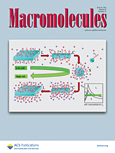
MACROMOLECULES
Connecting Ideas, Inspiring DiscoveriesMACROMOLECULES, published by the American Chemical Society, is a premier journal in the fields of inorganic chemistry, materials chemistry, organic chemistry, and polymers and plastics. Since its inception in 1968, this influential journal has established itself as a vital resource for researchers, professionals, and students, showcasing cutting-edge research and advancements in the study of macromolecules and high-performance polymers. With a distinguished impact factor and consistently ranking in the top quartiles (Q1) across its relevant categories, MACROMOLECULES is recognized for its high-quality publications that contribute significantly to the scientific community. The journal is accessible in both print and electronic formats, facilitating rapid dissemination of knowledge. By providing a platform for innovative studies and groundbreaking discoveries, MACROMOLECULES continues to play a crucial role in shaping the future of materials science and polymer research.
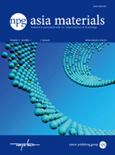
NPG Asia Materials
Navigating the Future of Materials with Expert PerspectivesNPG Asia Materials, a premier journal published by NATURE PORTFOLIO, stands at the forefront of research in the fields of condensed matter physics, materials science, and modeling and simulation. With an impressive Impact Factor gracing its Q1 rankings in 2023, this open-access journal, established in 2012, offers a vital platform for disseminating high-quality research articles, reviews, and perspectives that advance the understanding of material properties and innovative applications. Based in the United States and catering to a global audience, NPG Asia Materials features cutting-edge contributions that not only enhance academic scholarship but also provoke discussions relevant to both industry and academia. Researchers, professionals, and students are invited to explore its extensive archive of work, covering insights from 2009 to 2024, in a bid to stay abreast of the latest developments in these rapidly evolving scientific domains.
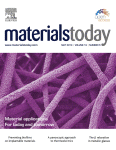
Materials Today
Fostering Collaboration in the World of MaterialsMaterials Today is a premier academic journal published by Elsevier Science Ltd, specializing in the dynamic fields of materials science, mechanical engineering, and condensed matter physics. Established in 1999, the journal has garnered an enviable reputation, consistently ranking in the Q1 category across multiple disciplines including mechanics of materials and general materials science, reflecting its influence and high-quality research output. With an impressive Scopus ranking—4th in both mechanical engineering and mechanics of materials, and 6th in condensed matter physics—Materials Today serves as an essential resource for researchers, professionals, and students seeking to stay at the forefront of developments in material innovations and applications. The journal is known for its commitment to publishing significant research findings and reviews, making it a vital platform for disseminating knowledge and fostering collaboration in the rapidly evolving materials field. Although it does not offer open access, its robust impact factor underscores the importance of the content published, ensuring wide visibility and citation among the academic community. Explore the rich tapestry of materials research with Materials Today, where groundbreaking insights pave the way for future technological advancements.
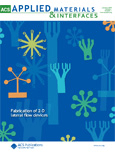
ACS Applied Materials & Interfaces
Driving Discoveries at the Intersection of Science and ApplicationACS Applied Materials & Interfaces, published by the American Chemical Society, stands as a leading journal in the field of applied materials, nanotechnology, and interdisciplinary research in medicine. With an impressive Impact Factor that places it in the Q1 category across Materials Science, Medicine, and Nanoscience and Nanotechnology, this journal consistently ranks among the top tier, evidencing its significance and influence in advancing scientific knowledge. The journal’s scopus ranking of 33 out of 463 in General Materials Science further underscores its critical role in disseminating innovative and high-quality research. Although it is not an open-access journal, a diverse range of access options is available, ensuring that vital research findings are accessible to a broad audience of researchers, professionals, and students. Targeting breakthroughs in the synthesis, characterization, and application of materials and interfaces, ACS Applied Materials & Interfaces serves as a pivotal platform for publishing cutting-edge studies essential for future technological advancements.

Advanced Materials Interfaces
Transforming Engineering with Interfacial BreakthroughsAdvanced Materials Interfaces is a premier journal dedicated to the exploration and advancement of materials science, with particular emphasis on the interfacial phenomena that govern the behavior of materials in various engineering applications. Published by WILEY in the United Kingdom, this Open Access journal, established in 2014, has quickly ascended to a Q1 category ranking in both Mechanical Engineering and Mechanics of Materials as of 2023, reflecting its significant influence and excellence in the field. With impressive Scopus Ranks, such as #81 out of 672 in Mechanical Engineering and #58 out of 398 in Mechanics of Materials, it serves as a vital resource for researchers and practitioners aiming to push the boundaries of materials innovation. The journal provides unrestricted access to its cutting-edge research, promoting collaboration and dissemination of knowledge among the global scientific community, solidifying its role as a vital contributor to the ever-evolving landscape of materials engineering.

ACS Materials Au
Unleashing Potential Through Open Access ResearchACS Materials Au, published by the American Chemical Society, is a premier open-access journal that has been at the forefront of materials science since its inception in 2021. With an ISSN of 2694-2461, this journal encompasses an expansive range of topics including biomaterials, electronic, optical and magnetic materials, materials chemistry, and polymers and plastics, consistently achieving Q1 rankings in these categories for 2023. The journal is based in the United States and operates from the AMS's headquarters in Washington, DC, offering significant visibility and a robust platform for researchers. The journal's commitment to open access ensures wide dissemination of groundbreaking research, enabling a diverse audience—including researchers, professionals, and students—to engage with the latest advancements in materials science. With an encouraging impact factor and a focus on novel materials and innovative applications, ACS Materials Au stands as a vital resource for anyone devoted to understanding and advancing the frontiers of materials engineering and science.

Materials Today Advances
Unlocking innovations in materials and mechanical engineering.Materials Today Advances is a premier open access journal, published by Elsevier, dedicated to disseminating cutting-edge research in the fields of Materials Science and Mechanical Engineering. Since its inception in 2019, the journal has quickly established itself within the academic community, achieving an impressive Q1 quartile ranking in both disciplines as of 2023, indicative of its high-impact contributions. Ranked #25 out of 672 in Mechanical Engineering and #46 out of 463 in General Materials Science according to Scopus, Materials Today Advances offers rigorous peer-reviewed articles that address the latest innovations and interdisciplinary approaches. Researchers, professionals, and students can benefit from the journal's open access model, ensuring widespread visibility and accessibility of groundbreaking findings. With the convergence of advanced materials research and practical applications, this journal represents a vital resource for those at the forefront of scientific discovery.
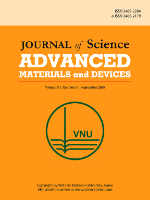
Journal of Science-Advanced Materials and Devices
Transforming Ideas into Advanced Materials SolutionsJournal of Science-Advanced Materials and Devices is a leading open-access journal published by Vietnam National University, dedicated to advancing the field of materials science through cutting-edge research and innovative developments. Since its inception in 2016, this journal has become a pivotal platform for sharing insights and discoveries in various subfields, including biomaterials, ceramics and composites, and electronic, optical, and magnetic materials. With impressive quartile rankings, including Q1 across multiple categories in 2023, and a notable Scopus ranking placing it in the top 15th percentile for ceramics and composites, it highlights the journal’s influence and prestige within the global academic community. Open Access since its launch, the journal aims to facilitate unrestricted dissemination of scholarly work, empowering researchers, professionals, and students to engage with the latest advancements. The Journal of Science-Advanced Materials and Devices is vital for those seeking high-quality contributions that influence both theoretical understanding and practical applications in the ever-evolving landscape of materials science.
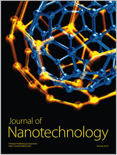
Journal of Nanotechnology
Transforming Materials Science Through Nanotech InsightsThe Journal of Nanotechnology, published by Hindawi Ltd., is a premier open-access platform dedicated to delivering high-quality research in the dynamic field of nanotechnology. With the ISSN 1687-9503 and E-ISSN 1687-9511, this journal has been at the forefront of disseminating innovative findings since its transition to open access in 2009, fostering a global dialogue among researchers, professionals, and students. Based in Egypt, the journal maintains its commitment to advancing the material science sector, currently holding a prestigious Q2 ranking in the 2023 Materials Science (miscellaneous) category, reflecting its significant contribution to the field. With a Scopus ranking of #162 out of 463 journals in General Materials Science, placing it in the 65th percentile, the Journal of Nanotechnology serves as a crucial resource for those looking to explore the latest advancements and applications in nanomaterials. The journal invites submissions that align with its scope, which emphasizes interdisciplinary approaches and novel methodologies, promising to enhance both academic and practical aspects of nanotechnology.
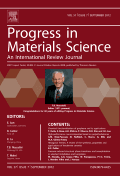
PROGRESS IN MATERIALS SCIENCE
Pioneering Discoveries in Materials SciencePROGRESS IN MATERIALS SCIENCE is an esteemed peer-reviewed journal published by Pergamon-Elsevier Science Ltd, focusing on pioneering advancements and comprehensive studies in the field of Materials Science. With an ISSN of 0079-6425 and an E-ISSN of 1873-2208, this journal boasts a prestigious status, ranking in the Q1 category for Materials Science (miscellaneous) and achieving a remarkable 99th percentile in Scopus rankings, positioned 4th out of 463 journals in General Materials Science. Published from the United Kingdom, PROGRESS IN MATERIALS SCIENCE provides critical insights into the latest discoveries, trends, and methodologies shaping the materials science landscape, making it an invaluable resource for researchers, professionals, and students alike. Readers can explore rich content on subjects ranging from nanomaterials to biomaterials and beyond, all designed to foster innovation and knowledge dissemination in the materials science community. Although it is not an open-access journal, it remains a pivotal platform for high-quality research and essential discourse in this dynamic field.